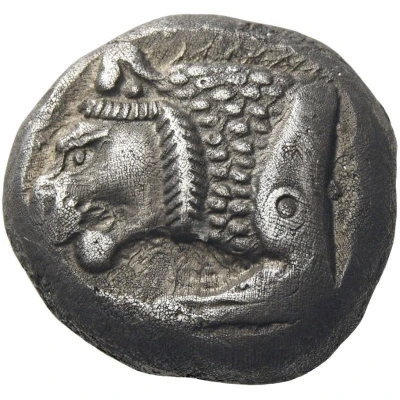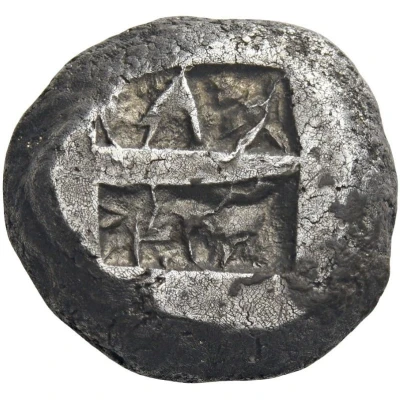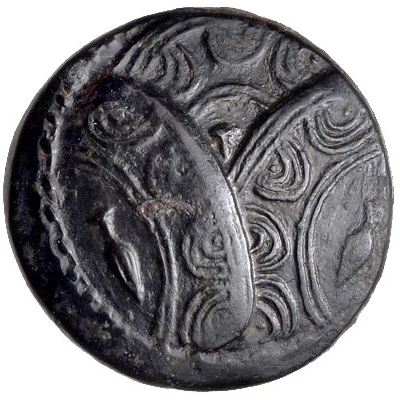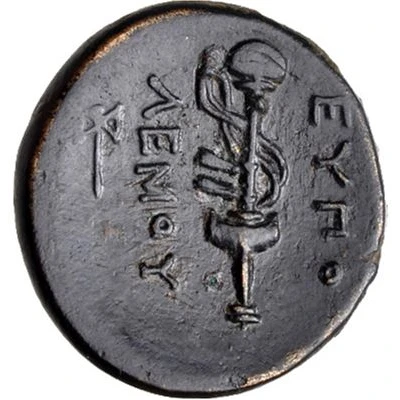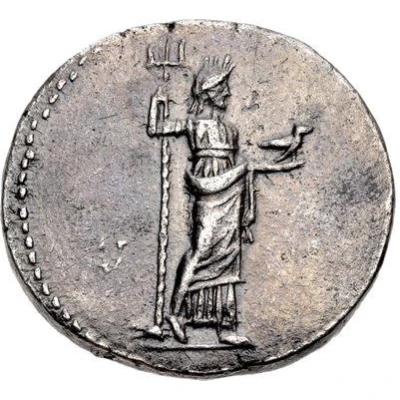
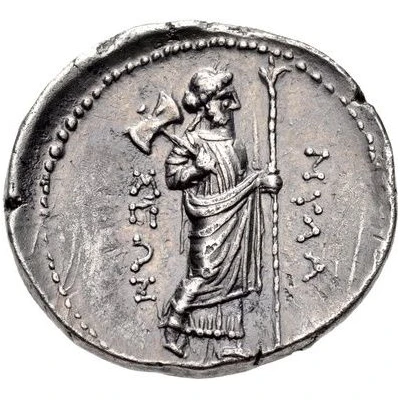

© Classical Numismatic Group, Inc.
Tetradrachm 250 BC - 200 BC
| Silver | 13.30 g | 25 mm |
| Issuer | Mylasa (Caria) |
|---|---|
| Type | Standard circulation coin |
| Years | 250 BC - 200 BC |
| Value | Tetradrachm (4) |
| Currency | Drachm |
| Composition | Silver |
| Weight | 13.30 g |
| Diameter | 25 mm |
| Shape | Round (irregular) |
| Technique | Hammered |
| Demonetized | Yes |
| Updated | 2024-10-10 |
| Numista | N#389855 |
|---|---|
| Rarity index | 100% |
Reverse
Zeus Labraundos walking right, wearing chiton and himation; double axe on right shoulder, and spear in left hand; dotted border.
Script: Greek
Lettering:
ΜΥΛΑ
ΣΕΩΝ
Comment
Delrieux 1 (D1/R1); Akarca 9; SNG Keckman –; SNG von Aulock –.
Only four specimens known.
Interesting fact
One interesting fact about this coin is that it features the image of a satyr, a mythical creature with human-like upper body and goat-like lower body, on the reverse side. Satyrs are often associated with Dionysus, the Greek god of wine, fertility, and theater, and their appearance on this coin may suggest a connection to these themes. Additionally, the fact that this coin was minted in Mylasa (Caria) during the Hellenistic period (250-200 BC) makes it a valuable artifact for studying the cultural and economic exchange between ancient Greek city-states.
